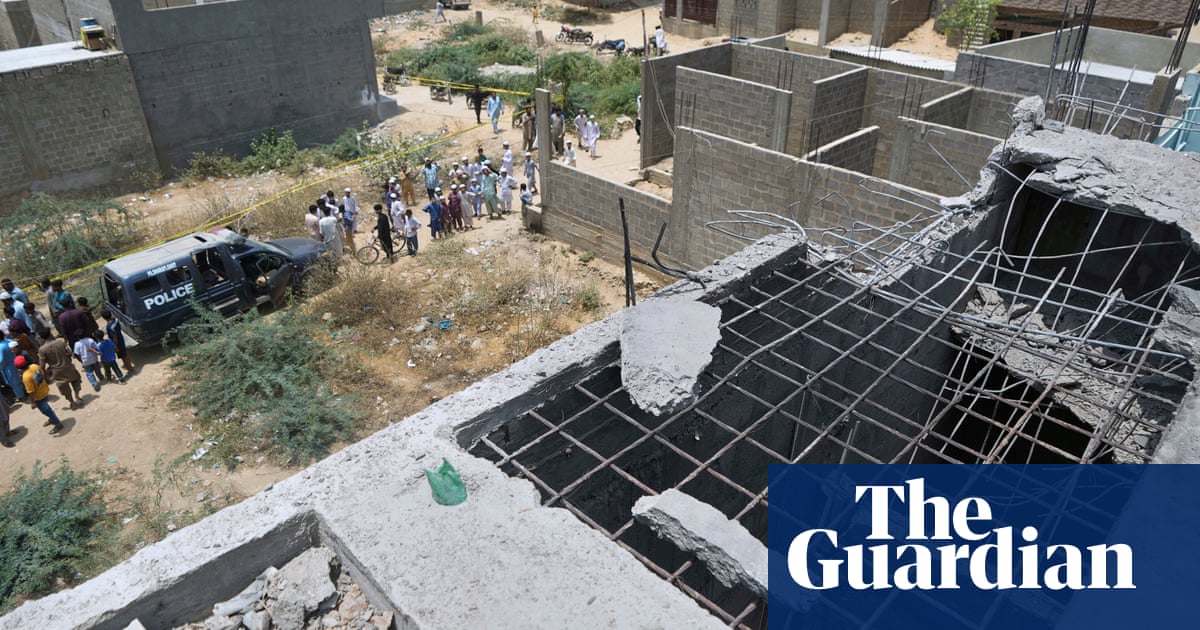Pakistan and India accused each other of overnight drone and missile attacks, with Delhi claiming to have thwarted strikes on more than a dozen cities and Islamabad claiming to have shot down 25 Indian drones.
The allegations levelled on both sides marked a stark escalation of the conflict between the two nuclear-armed nations, after Indian missile strikes on Pakistan in the early hours of Wednesday killed 31 people.
India said the strikes were a direct retaliation for an attack in Indian-administered Kashmir late last month, in which militants killed 25 Hindu tourists and their guide. India had accused Pakistan of direct involvement in the attacks, through Islamist militant organisations it has long been accused of backing.
Pakistan’s military spokesperson Gen Ahmed Sharif Chaudhry said at a press conference that India had “apparently lost the plot” as he accused it of “yet another blatant military act of aggression” in sending more than a dozen drones overnight over major cities including Rawalpindi, where Pakistan’s military has its headquarters.
He said Pakistan’s air defence systems had brought down more than a dozen drones, and a confrontation with another airborne Indian device had left four Pakistani soldiers injured. He said a civilian in the Miano area of Sindh, which borders India, died in an incident involving a drone, but he did not give further details.
Chaudhry said Pakistan considered the drones to be a “serious provocation” by India and said drone debris was being collected by the armed forces and police.
“This naked aggression continues and the armed forces are on high degree of alert and neutralising them as we speak,” he said.
India alleged that Pakistan had attempted to launch drones and missiles at a number of military targets in its north and west, including in the cities of Amritsar, Srinagar and Chandigarh. It said its air defence systems stopped all the attacks.
India’s defence ministry said it had “neutralised” the air defence system over the Pakistani city of Lahore and said: “Any attack on military targets in India will invite a suitable response.”
India’s foreign minister, Subrahmanyam Jaishankar, warned on Thursday that India would respond to any military aggression by Pakistan. “If there are military attacks on us, there should be no doubt that it will be met with a very, very firm response,” he told a visiting Iranian delegation.
Speaking to the Guardian, a senior Pakistani security official denied India’s claims of any Pakistani attack on military installations in India.
“The damage to Lahore’s system is minor, more like a scratch, it is still functioning,” he said. “We have shot down at least 25 Indian drones across bordering regions in Punjab and Sindh provinces.”
The security official said Pakistan had not yet begun its offensive retaliation against India for the missile and drone attacks, but was clear that action would now be taken.
“We have not fired any missiles or drone attacks inside India or any military installations,” he said. “This is fake news from Indian authorities. The offensive response will come now.”
Amid reports of drone attacks in Lahore, the US embassy in Pakistan issued a warning to its consulate staff: “Due to reports of drone explosions, downed drones, and possible airspace incursions in and near Lahore, the US consulate general in Lahore has directed all consulate personnel to shelter in place.”
India’s strikes on Wednesday were the most extensive military attack on Pakistan in decades, with nine locations targeted, including four in Pakistan’s Punjab region.
In a speech late on Wednesday night, Pakistan’s prime minister, Shehbaz Sharif, said he would “avenge each and every drop of blood of our martyrs”.
Across both countries, flights were suspended and airports shut down. In Pakistan, all flights from Karachi, Lahore and Sialkot airports were suspended until Thursday night. More than 20 local airports across the north of India were closed until Saturday.
In Pakistan’s Sindh region, which shares a border with India, a state of emergency was declared in all hospitals and health facilities, and all medical personnel and support staff leave was cancelled, according to a notice issued by the provincial health department.
In Amritsar, 20 miles from the Pakistan border, a second security drill and brief blackout were carried out on Wednesday evening, and residents were urged to stay alert.
India’s border states of Rajasthan and Punjab were also put on high alert, with all police leave cancelled and border security forces given shoot-on-sight orders for any suspicious activities. India has activated anti-drone systems near the border.
Sharif called India’s attacks an “act of war”, and senior army officials and government ministers vowed Pakistan would respond. However, by Thursday morning the nature of that response remained unclear.
Some government ministers suggested Pakistan’s claim to have shot down five Indian military aircraft, including three elite French-made Rafale jets, during the confrontation on Wednesday was retribution, while others said Pakistan’s full response was yet to come.
It is widely acknowledged that any decision over Pakistan’s military response to India will be made by the country’s army chief, Gen Asim Munir, who is under mounting public pressure to show strength against India.
Ministers in the Indian government said their attacks were retribution for Pakistan’s alleged involvement in a militant attack in the Indian region of Kashmir in April that killed 26 people. Pakistan has denied any role in that attack.
India claimed Wednesday’s strikes targeted “terrorist infrastructure” including training camps and homes belonging to well-known militant organisations that have been behind some of the worst terror attacks in India over the past two decades. They emphasised they had not hit any Pakistani military bases or equipment, and described the strikes as “measured, not escalatory, proportionate and responsible”.
However, Pakistan denied that any terror groups had been operating in the areas hit by Indian missiles, and said the strikes had targeted only civilians.
Along the contested border between India and Pakistan, which divides the disputed region of Kashmir, intensive cross-border shelling between the two sides continued into a second night. It was reported that at least one Indian soldier had been killed along with 11 civilians, and local people continued to be evacuated from the area.
International diplomatic efforts continued in an attempt to get the two sides to de-escalate. The Iranian foreign minister, Abbas Araghchi, landed in Delhi on Thursday morning, after earlier offering to play a mediating role between the two countries. The Saudi foreign minister also made a surprise trip to India on Thursday morning, where he met Jaishankar.










